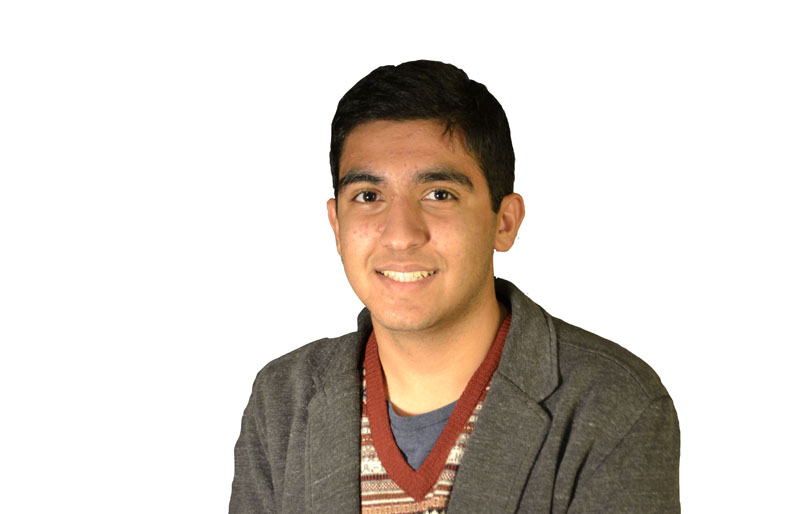Mian: Stand in solidarity with freedom of speech, not xenophobia
January 12, 2015
Following this week’s killing of 12 people at French satirical organization Charlie Hebdo’s office in Paris, people around the world, through the media or social networks, quickly began discussing the attack, denouncing the murders, standing with the freedom of speech that Charlie Hebdo championed and mourning the deaths of victims.
But just like every other time violence is committed by a “Muslim,” the Islamic faith was linked to it and Muslims were again called upon to condemn it. To clarify, the murders were condemned by Muslims and non-Muslims alike. The expectation that it was the responsibility of every individual who practices Islam, though, to denounce this act as if it were inherently tied to them is increasingly unique to Islam and plays directly into the attempted narrative that Islam and the modern, liberal West are at odds and incompatible.
For comparison, following a bombing outside the NAACP in Colorado Springs by a white male suspect last Tuesday, a news item that received much less coverage, there were no calls for condemnation from every white individual in the world. If not from me, take it from J.K. Rowling, who tweeted “I was born Christian. If that makes Rupert Murdoch my responsibility, I’ll auto-excommunicate,” after Murdoch tweeted that “Moslems” should be held responsible for attacks like the one in Paris until they “recognize and destroy their growing jihadist cancer.”
It is simply ridiculous to imagine a Christian man in South India being asked to condemn the KKK, yet guilt is more easily placed upon all 1.6 billion Muslims in the world for acts of violence perpetrated by Muslims. But to blame Islam for the violence that took place at Charlie Hebdo is to also put blame on Ahmed Merabet, a Muslim French police officer who was killed defending the Charlie Hebdo cartoons that ridiculed his faith.
But many seem unable to grasp that people who carry the label “Muslim,” like all other humans, operate on a scale that ranges from good to evil. That is the spectrum of all human action, and it is irresponsible to equate Islam only with violent actions carried out by people who claim to adhere to it. Our humanity, diversity and complexity should be assumed.
Merabet defended freedom of speech as a French Muslim. Freedom of speech is not contestable. A vibrant society can only thrive when speech, even that which is hateful and insulting, is protected.
But freedom of speech isn’t the issue we must struggle with following Charlie Hebdo. Rather, it’s our interaction with the values contained within that speech. It is imperative to protect its existence while condemning its bigoted nature and its attempts to promote a xenophobic and secularly superior identity in France. To not criticize is itself silencing speech that promotes reason and compassion.
The early 20th century was host to a variety of anti-Semitic cartoons and caricatures, which today we denounce with clarity.
Anti-Semitism and Islamophobia persist in France. Within two days of the Charlie Hebdo attack, 15 targeted attacks against Muslims had taken place in France. And yet many today stand with Charlie Hebdo not only to protect its speech, but also to support its content: white male-driven insults directed at marginalized French populations through often Islamophobic, sexist and homophobic depictions. It’s unnerving to see people honoring Charlie Hebdo, which published a cartoon portraying Boko Haram kidnapping victims as pregnant welfare queens, as a journalistic martyr.
Civil liberties have themselves become a pick-and-choose value. France famously banned religious symbols in public places, directly denying Muslim women the right to wear a hijab. In 2009, a Charlie Hebdo cartoonist was charged with “inciting racial hatred” for a satirical and anti-Semitic column he wrote. In July of this year, France banned pro-Palestinian demonstrations, the first country to do so.
Freedom of speech cannot be a tool used to protect certain forms of hatred. As defendants of this freedom, we can’t make ideological choices as to where we want to protect it and where we’ll let it slide. Nonetheless, we cannot remain silent as marginalized populations are continuously slighted and made the “other.” It is our challenge not to let Charlie Hebdo or the violent murderers who attacked its columnists define an intolerant “clash of civilizations” narrative that prevents the peaceful integration and vibrant growth of pluralistic societies.
Naib Mian is a Medill sophomore. He can be reached at [email protected]. If you want to respond publicly to this column, send a Letter to the Editor to [email protected].


